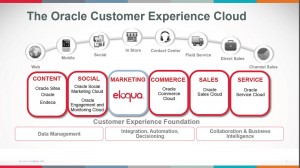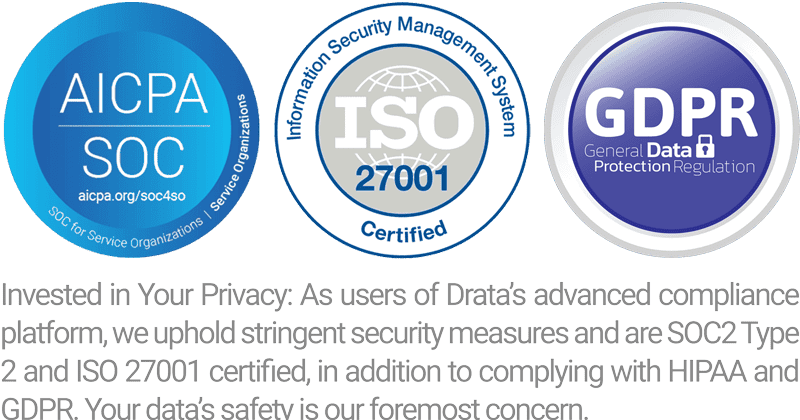Oracle Acquires Eloqua
 Last week there was a tectonic shift in the marketing automation industry when Oracle acquired Eloqua. When Oracle acquires anyone it’s a big announcement just like it was when they bought Market2Lead and RightNow. Oracle is melding together what they call the Oracle Customer Experience (CX) that creates an end-to-end experience for customers covering service, sales and support. It also gives Oracle an on-premise solution (Oracle Siebel) and cloud solution (Oracle Cloud). We wanted a chance to sound off on this topic and explain what this means to the industry and to Lead Liaison.
Last week there was a tectonic shift in the marketing automation industry when Oracle acquired Eloqua. When Oracle acquires anyone it’s a big announcement just like it was when they bought Market2Lead and RightNow. Oracle is melding together what they call the Oracle Customer Experience (CX) that creates an end-to-end experience for customers covering service, sales and support. It also gives Oracle an on-premise solution (Oracle Siebel) and cloud solution (Oracle Cloud). We wanted a chance to sound off on this topic and explain what this means to the industry and to Lead Liaison.
Oracle’s acquisition of Eloqua validates the use of marketing automation technology for B2B, as well as B2C, companies. The marketing automation industry has been on fire lately. One thing is for certain, consolidation is the new buzz word. Here are just a few of the acquisitions in the marketing automation space over the past few years which lend credence to the high growth nature of this technology:
- December 2010 – Teradata acquired Aprimo (B2C) for $525M. Aprimo did $100M (5X multiple)
- August 2010 – IBM acquired Unica for $480M. Unica did $100M in revenue (5X multiple)
- June 2010 – Oracle acquired Market2Lead for undisclosed amount
- December 2011 – SDL Buys Marketing Automation Vendor Alterian for $107 Million
- January 2012 – CallidusCloud buys LeadFormix Marketing Automation for $9 Million Cash
- October 2012 – ExactTarget buys Pardot for $95.5 Million ($85.5 Million cash and $10M in equity, a 9X multiple)
- December 2012 – Oracle acquires Eloqua for $871 Million while Eloqua’s revenue was $90 Million (close to 10X multiple)
Notice one trend. The multiples a few years ago were around 5X. Now they’ve doubled – that’s rapid growth. Revenues for business-to-business (B2B) marketing automation systems will grow 60% to reach $525 million in 2012. That’s astounding growth since revenues were $328M in 2011 and $200M in 2010. Chief Information Officers (CIOs) and Chief Marketing Officers (CMOs) are taking notice and CMOs are taking charge, which continues to drive adoption of marketing automation technology.
Such software has become a common purchase among CMOs, who will spend more on IT than CIOs by 2017, according to Gartner analyst Laura McLellan. In 2012, IT budgets are expected to grow 4.7%, while high-tech marketing budgets are expected to increase 11%…CMOs purchase automated marketing tools without vetting the technologies with CIOs. – Clint Boulton, Wall Street Journal
There will be two key reverberations as Oracle acquires Eloqua. First, this will fuel more consolidation in the market place as Oracle’s key competitors such as Salesforce.com, IBM and SAP look to beef up their portfolios with similar technology. Second, Eloqua’s existing customer base should expect change in a few ways. For example, Salesforce.com is a deeply engrained within Eloqua (chatter integration, analytics, plug-ins). I don’t expect Salesforce.com to cutoff support or integration; however, I do expect Salesforce.com and Eloqua to not put integration efforts as the top priority on their list as Oracle looks to further separate themselves from Salesforce.com. Also, Oracle will look to blend Eloqua into their other software stacks that make up the Customer Experience Cloud including Content, Social, Commerce, Sales and Service. This could mean a de-emphasis on pure marketing automation features and an emphasis on integration into Oracle’s broader offering. Unfortunately for Oracle, some customers just want a dedicated solution and don’t want other integrated pieces which they’d consider “noise” especially if they’re of no value. Expect Oracle to aggressively try to up sell existing Eloqua customers. Bottom line – existing Eloqua customers, proceed with caution.
The acquisition is significant to Lead Liaison and adds fuel to our rapid growth. The playing field has been simplified which opens up a new wave of opportunity in the marketplace. Businesses in the micro (<$5M), small ($5M – $20M) and mid-size ($20M – $500M) market tiers will shy away from getting sucked into a full-blown Oracle stack and express preference for an optimally focused revenue generation platform. Moreover, the marketing automation industry is expected to grow rapidly, even outpacing the CRM space, and there’s plenty of room for growth. On average, about 10% to 15% of all B2B organizations use marketing automation while the mid-size market has the biggest growth potential as less than 3% of B2B organizations use marketing automation technology – according to David Raab. Sirius Decisions predicts adoption of marketing automation technology to increase to 50% by 2015. 35% to 50% market growth is a considerable jump in just a few years given the CRM space grew by only 22% from 2003 to 2010. With a solid roadmap for 2013 that emphasizes ease of use, innovation, flexible business models, and a focus on helping companies achieve rapid revenue growth – Lead Liaison is solidly position to provide our customers with a world-class Revenue Generation Software platform that offers marketing automation technology and much more.


